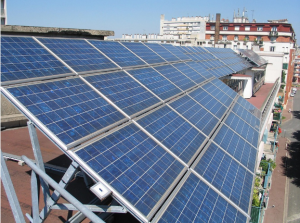Variable Energy Resources Vs. Baseload

All wind and solar are only good up to a point. When they power flexible demand, they have some benefit. But if their total capacity cuts into baseload demand, they do more harm than good and actually become a liability.
Countries with extreme market penetrations of wind and solar – like Denmark and Germany – have already undermined the economics of baseload power. This means that nuclear power and fossil with CCS have been put at an economic disadvantage. Since without nuclear and CCS there is no hope of solving the climate crisis, wind and solar (when taken too far) indirectly become a cause of global warming, rather than a cure. Germany and Denmark will never become fossil fuel free, because their wind and solar overbuild will require fossil backup. They have driven into a cul-de-sac with no hope of ever reaching the superior carbon performance of a country like France.
Fortunately, you’re not completely correct here—or better said, you’re oversimplifying a very interesting and complicated calculus. There are dozens of variables all swimming around that have huge implications.
Consider storage. In a world of cheap storage, there is little devaluation of variable resources; all forms of energy are dispatchable, and the argument about fossil fuel backup goes completely out the window.
Then consider power transmission. In a world with unlimited capacity to move power around the globe, there are no variable resources at all, i.e., someplace, the sun is always shining and the wind is blowing.
Finally, think about the effects of efficiency, smart-grid, electric transportation, all the other flavors of renewables, and the prospect of advanced nuclear.
Pinning this down isn’t a piece of cake.

Craig,
While grid level energy storage will allow the expansion of solar and wind into baseload power geothermal and hydro are also renewable energy and presently being used to support the base.
Another break through for renewable energy may be effective (and economical) carbon sequestration. Perhaps something like this: http://www.gizmag.com/carbon-capture-rock-two-years/43787/